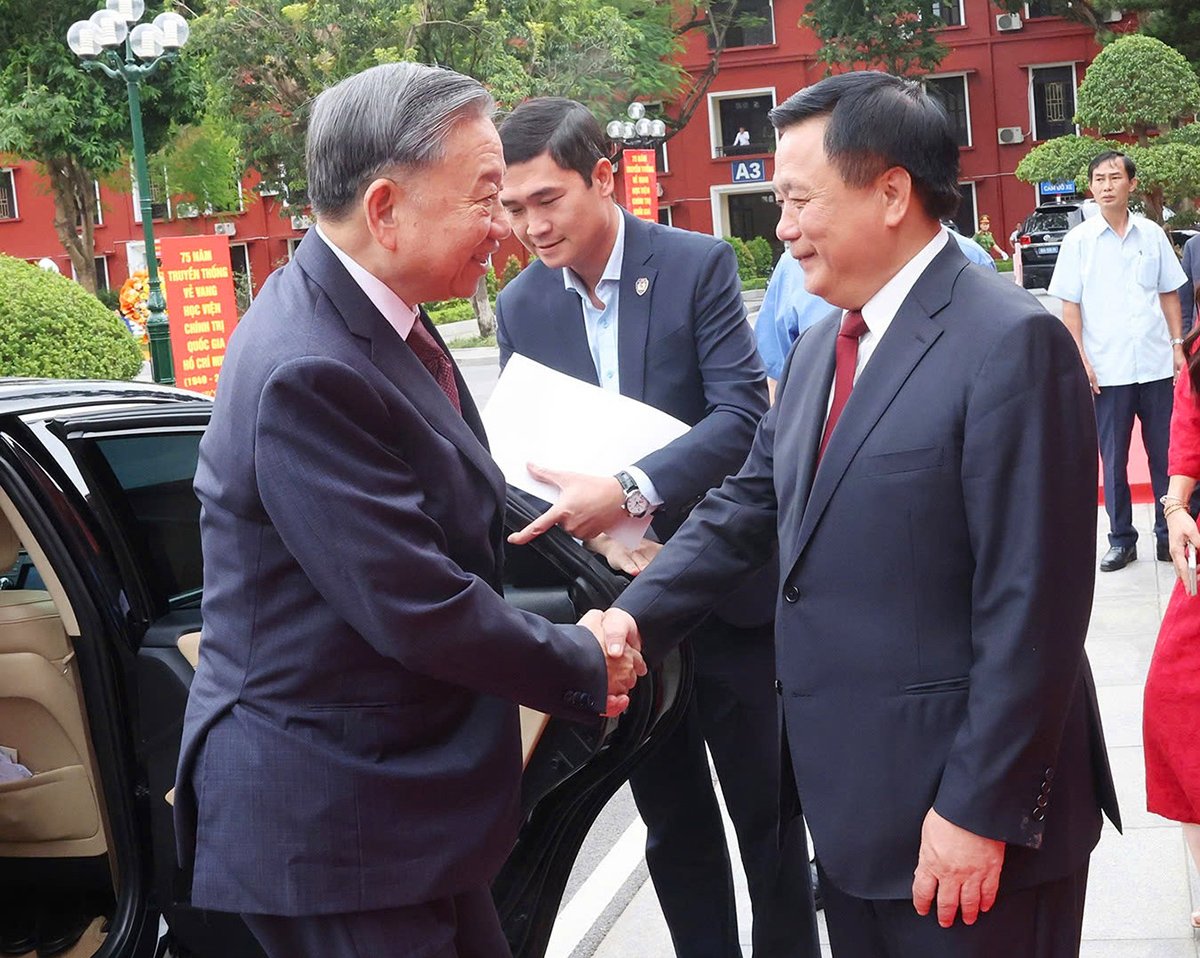
Requirements for training and fostering cadres in the new era
Throughout the process of leading the revolution, the Communist Party of Vietnam has always attached importance to the work of training and developing generations of virtuous and talented cadres who are dedicated to serving the people and the Fatherland. During his lifetime, President Ho Chi Minh affirmed: "Cadres are the root of all work", "training cadres is the root of the Party's work" (1) ; "success or failure depends on good or bad cadres" (2) . Training and fostering play an important role in building a team of cadres who are "both red and professional", meeting the tasks of each revolutionary stage. The 13th Party Congress determined: “Focus on building a contingent of cadres at all levels, especially at the strategic level, with sufficient qualities, capacity and prestige, equal to the task. Perfecting institutions and regulations on cadre work, title standards, criteria and cadre assessment mechanisms. Building a contingent of cadres, first of all leaders with strong political will, pure ethics, outstanding capacity, daring to think, daring to speak, daring to do, daring to take responsibility, daring to innovate, daring to face difficulties and challenges, daring to act for the common good, having high prestige and being truly pioneers, exemplary, and being the nucleus of solidarity” (3) . Thus, to achieve this goal, the task of training and fostering cadres is important and necessary.
General Secretary To Lam affirmed that training and fostering cadres has always been identified as the “key” task of Party building. Entering the era of rising up, it is necessary to create strong movements, demonstrating the aspirations, intelligence and national spirit. For the Vietnamese nation to rise up, it is necessary to have high-quality human resources, including leaders and managers at all levels.
In the new context, innovation in training and fostering cadres at all levels, especially at the strategic level, includes the following requirements:
Firstly , it is necessary to focus on building a team that is sufficient in quantity and ensures quality, responsibility and enthusiasm for the revolutionary cause to operate a streamlined - strong - efficient - effective - efficient political system. The team of cadres, especially at the strategic level, needs to have a methodology, strategic vision, innovative thinking capacity and decisive action, manage social transformation in accordance with objective development trends, know how to promote potential, take advantage of opportunities to bring the Vietnamese nation up, on par with advanced countries in the world.
Second , cadres at all levels, especially at the strategic level, need to be equipped with a system of professional knowledge, expertise and proficient professional skills, and practical work experience. In addition to systematic and basic training and development, it is necessary to develop specialized training and development programs for each type of cadre according to professional requirements, scope of activities in the industry, field and leadership and management level in the political system.
Third, cadres at all levels, especially at the strategic level, need to master knowledge and skills in applying modern scientific and technological advances, and be able to adapt and work effectively in digital production methods to effectively serve leadership, direction, management and integration with the international environment. Today, the Fourth Industrial Revolution helps liberate labor, increase productivity, promote human creativity, create changes in thinking in all fields, change the approach to governance policies and development strategies of each country. In the face of these changes, the requirements for training and fostering cadres at all levels, especially at the strategic level, require updating and supplementing knowledge about science and technology, digital transformation, as well as the ability to adapt to new contexts to work, lead and manage social development in the digital transformation process.
Fourth , innovate thinking and implementation methods; at the same time, deploy specific measures to build a team of cadres at all levels with sufficient capacity, qualities, and prestige to match the tasks, contributing to helping the country rise up and stand shoulder to shoulder with the world's great powers.
Orientation for fundamental innovation in training and fostering cadres at all levels, especially at the strategic level in the new era
In the coming time, the innovation of training and fostering of cadres at all levels, especially at the strategic level, in the new era needs to focus on the following contents:
Firstly, focus on training and fostering staff to improve creative thinking ability, transforming into breakthrough actions.
It is necessary to start from new thinking and new actions in leadership and direction to innovation, creativity, flexibility and dynamism in implementation to achieve the set goals. The new generation of cadres in the era of rising up, first of all leaders and managers at all levels, need to have "new thinking" and "new actions" to carry out the "revolution" in perfecting institutions, national governance, and apparatus organization, while creating breakthroughs in infrastructure development, implementing digital production methods...
Next, it is necessary to innovate thinking and practical actions to liberate all productive forces, maximize internal resources, take advantage of external resources, take internal resources, human resources as the foundation, science - technology and innovation as breakthroughs to bring the country into a new era. Resolutely overcome empiricism, conservatism, dogmatism, and "group interests" in policy making, leadership and direction; encourage drastic, timely and practical solutions and actions. The 13th National Party Congress approved the 10-year Socio-Economic Development Strategy 2021 - 2030, with the 100-year strategic goal of turning Vietnam into a developing country with an upper middle income by 2030 and a developed, high-income country by 2045; the Vietnamese economy must achieve double-digit economic growth over a long period of time to catch up with developed economies in the region. To achieve that goal, the proposed solution is to strongly improve social labor productivity, effectively apply scientific and technological achievements of the Fourth Industrial Revolution; actively develop innovation; train and foster qualified human resources with skills to meet the requirements of economic development; enhance national governance capacity and improve policy quality; revolutionize institutions, organizations and apparatus. Therefore, breakthroughs in thinking in reforming the apparatus organization, implementing revolutionary solutions to streamline and improve the effectiveness and efficiency of the apparatus organization from the Central to the grassroots are important and revolutionary orientations to be able to make a breakthrough, improve effectiveness and efficiency, contributing to making Vietnam a developed country in the mid-21st century.
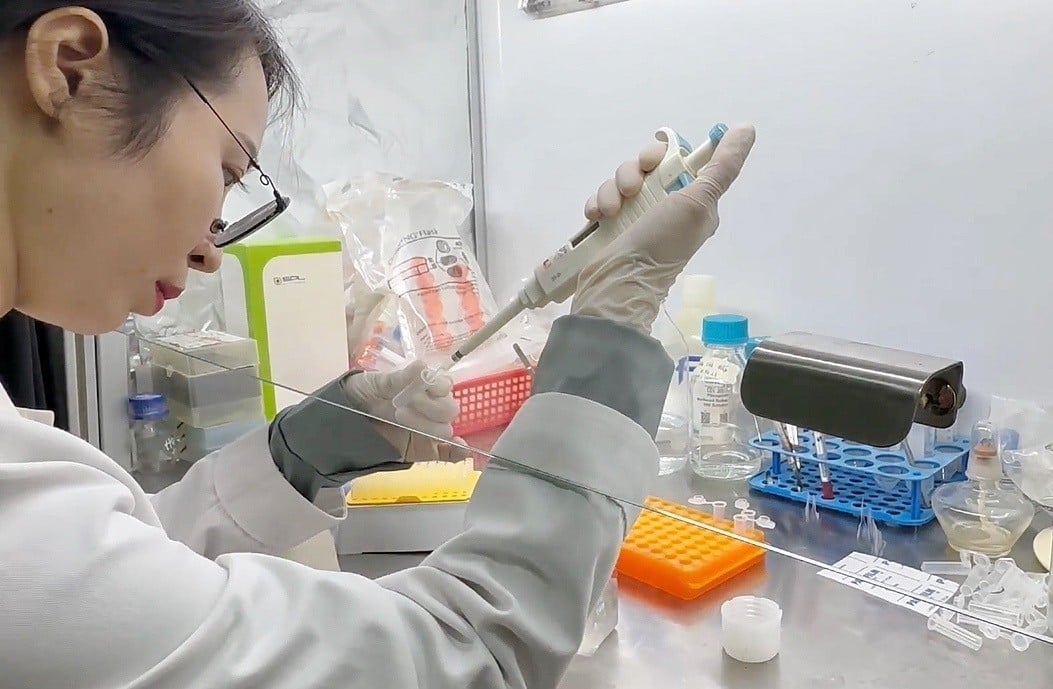
Second, pay attention to training, fostering and improving "technocratic" capacity.
Focus on training and selecting people with professional competence, leadership and management capacity, attracting talents in each field and with their own strengths to work in the political system. Training and fostering quality human resources in line with practical needs, including a team of cadres and elites with comprehensive knowledge in their fields of expertise, respecting knowledge and effectively applying it to leadership, direction, strategic management, and practice in their fields of work... "Increasing investment, innovation, improving the quality of education and training, ensuring high-quality human resources to meet the requirements of science and technology development, innovation and national digital transformation. Having attractive mechanisms and policies on credit, scholarships and tuition fees to attract excellent students to study in the fields of mathematics, physics, biology, chemistry, engineering and key technology, especially at postgraduate levels. Developing and implementing talent training programs in various fields. Issuing specific mechanisms to attract overseas Vietnamese and highly qualified foreigners to work and live in Vietnam (4) . In which, it is necessary to promote and respect the team intellectuals, scientists, and at the same time have special treatment mechanisms and create favorable working environments to attract, employ, and retain leading scientists. Build, connect, and develop a network of domestic and international experts and scientists.
Third, training and fostering adaptability and the ability to work in a digital environment.
Building a team of cadres at all levels, especially at the strategic level, with sufficient knowledge and vision to lead and direct digital transformation, issue decisions and strategies to implement digital transformation, create motivation for digital transformation, and form digital production methods... Training and fostering content must include content on digital transformation and digital production methods. Recently, the Politburo issued Resolution No. 57-NQ/TW, dated December 22, 2024, on "Breakthrough in science, technology, innovation and national digital transformation", demonstrating the strategic vision of our Party in the context of a rapidly changing world. The Resolution has identified the role of science, technology and innovation as a key driving force to promote economic growth, increase labor productivity and improve national competitiveness. Our Party's strategic vision focuses on developing high-quality human resources, especially in the fields of science, technology and digitalization. At the same time, building an innovation ecosystem is a necessary factor to promote the spirit of entrepreneurship and creativity in society. The Resolution requires that it is necessary to "focus on promoting cooperation in scientific research and technology development with countries with advanced science and technology, developing digital transformation, especially in the fields of artificial intelligence, biotechnology, quantum technology, semiconductors, nuclear energy and other strategic technologies" (5) . Above all, the Resolution demonstrates a timely grasp of global trends, such as globalization, supply chain shifts and increased technological competition between countries, demonstrating forecasting and adaptation to global trends and international integration.
Fourth, train and foster cadres at all levels, especially at the strategic level, to be capable of working in an international environment.
The international environment is multi-faceted, reflecting the multi-dimensional relationships and interactions between individuals and organizations of countries and territories in bilateral and multilateral forms. The content of relationships and interactions covers all areas of national and global life such as law, economics, politics, culture, society, defense - security, environment, etc. The international environment reflects the intertwined relationship of interests, both cooperation and competition, intertwined common and individual interests. To adapt and be capable of working in that environment, the staff, especially at the strategic level, must be thoroughly trained in school and regularly practiced. In addition to the requirements on standards and political qualities of the staff, it is necessary to clearly identify the important requirements on the ability to work in the international environment to equip the staff, especially at the strategic level, in the era of development. Accordingly, the basic requirements for cadres at all levels, especially at the strategic level in the international environment, are as follows: It is necessary to equip them with a broad knowledge base, be proficient in their profession, be solid in their expertise, and have the ability to update their knowledge and professional skills according to world trends. In addition, it is necessary to understand international laws, regulations, and practices, grasp and skillfully apply the international legal knowledge and skills system, to meet the requirements of today's extensive international activities. At the same time, it is necessary to clearly understand and respect the cultural identity of ethnic groups, countries, and regions in the world; preserve and promote the cultural identity of the Vietnamese nation.
Fifth, quality management, improving the effectiveness and efficiency of training and developing staff.
It is necessary to focus on the management of training quality, training processes as well as the management and assessment of teaching and learning quality. In particular, in the context of the widespread Fourth Industrial Revolution, it is necessary to promote the digital transformation process in a strong, synchronous and systematic manner in the fields of education and training in general, and training and fostering of cadres in particular. Our Party has set the goal of "striving to complete the construction of a digital government by 2030; to be among the top 50 countries in the world and ranked third in the ASEAN region in terms of e-government and digital economy" (6) . Education and training is one of the areas that is interested in promoting digital transformation. Accordingly, it is necessary to focus on "continuing to synchronously innovate the goals, contents, programs, methods, and methods of education and training in the direction of modernization, international integration, comprehensive human development, meeting the new requirements of socio-economic development, science and technology, adapting to the Fourth Industrial Revolution" (7) . Fundamentally innovate training and fostering methods according to the motto "taking students as the center, lecturers as the driving force and schools as the foundation". It is necessary to strongly transform training and fostering methods: Shifting learners from passive, one-way reception to proactive exploration, accumulation of knowledge, promoting self-study and self-research; teachers mainly provide methodologies, orientation, guidance, exchange information, experience and discussion to find optimal solutions to a practical problem.
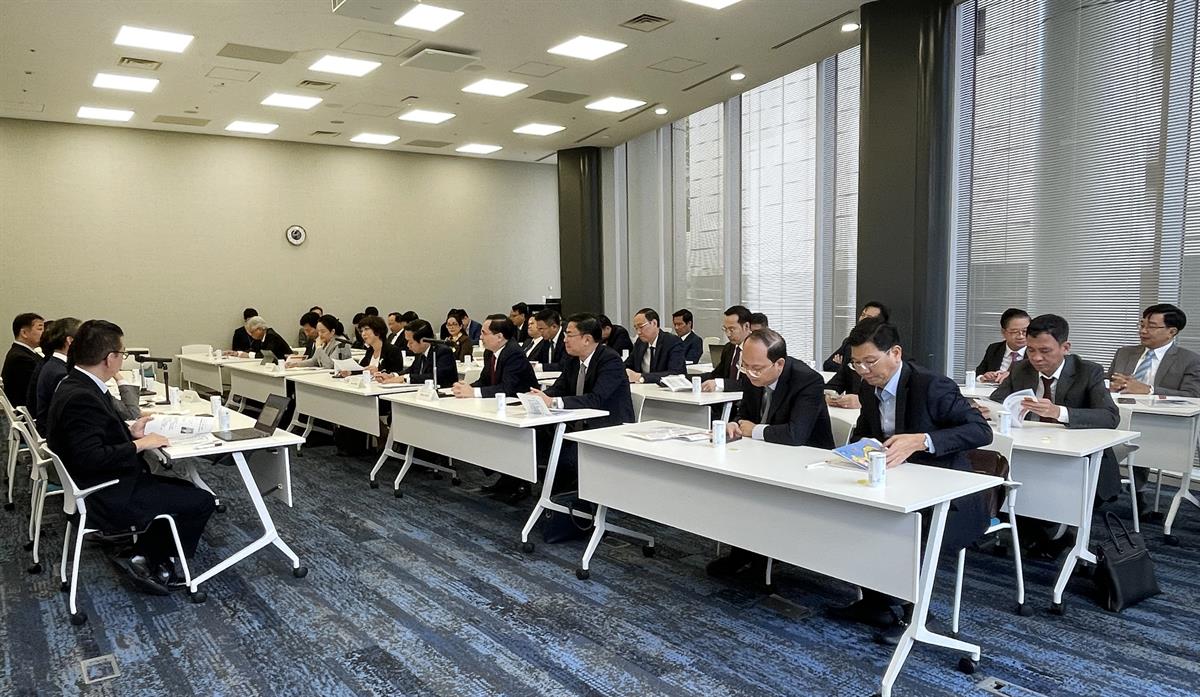
Strengthen centralized training, reduce decentralized training to ensure suitability with practical situations. Diversify training and development forms such as long-term, medium-term, short-term to suit the subjects, content, and programs. Strongly transform the training and development process of cadres from mainly classroom learning to different forms based on digital platforms, such as online learning, learning via the internet, and mass media. Arrange training and development facilities in a streamlined, compact, strong direction, operating effectively and efficiently in accordance with the functions, tasks, scale, and forms of training and development. Invest in and improve the quality of technical facilities of training and development facilities, ensuring quality teaching conditions and meeting the application and use of active teaching methods. Improve the quality of the teaching staff according to the criteria of having appropriate expertise, skills, and practical experience. Training and education institutions need to harmoniously combine the use of permanent lecturers and guest lecturers. Pay due attention to the regime and policies for lecturers and staff sent for training and education (both domestic and foreign training and education) in accordance with the new situation.
Sixth, diversify international cooperation in training and fostering officials at all levels.
Focus on attracting resources from international organizations through training cooperation programs and expert exchanges between the two sides to create opportunities for staff to research, study and get acquainted with the international working environment; improve the ability to adapt to diverse and rich practical requirements, improve the ability to handle and respond to situations and problems arising from practice. Furthermore, it is necessary to further diversify the "channels" (8) of exchange and training cooperation between Vietnam and countries and international organizations. Expand cooperation with universities and research institutes around the world through scholarship programs, funding for development projects, research, academic exchanges, conferences and seminars; long-term and short-term training cooperation, combined with short-term training and internship exchanges. Promoting the combined strength of economic diplomacy with other specialized diplomatic branches, such as cultural diplomacy, technological diplomacy, educational and training diplomacy, contributing to improving the working capacity of Vietnamese cadres in the international environment./.
---------------------
(1) Ho Chi Minh: Complete Works , National Political Publishing House Truth, Hanoi, 2011, vol. 5, p. 309
(2) Ho Chi Minh: Complete Works, ibid , p. 280
(3) Documents of the 13th National Congress of Delegates , National Political Publishing House Truth, Hanoi, 2021, vol. I, p. 187
(4), (5) See: Resolution No. 57-NQ/TW, dated December 22, 2024, of the Politburo, on "Breakthrough in science, technology, innovation and national digital transformation"
(6) Documents of the 13th National Congress of Delegates, op. cit. , p. 225
(7) Documents of the 13th National Congress of Delegates, op. cit. , p. 136
(8) Vietnam is implementing many training programs for officials abroad using the state budget (Conclusion 39); cooperation agreements with China, Japan, Singapore, Laos, Cambodia, etc.
Source: https://tapchicongsan.org.vn/web/guest/van_hoa_xa_hoi/-/2018/1081102/doi-moi-cong-tac-dao-tao%2C-boi-duong-can-bo-cac-cap-dap-ung-yeu-cau-cua-ky-nguyen-moi.aspx


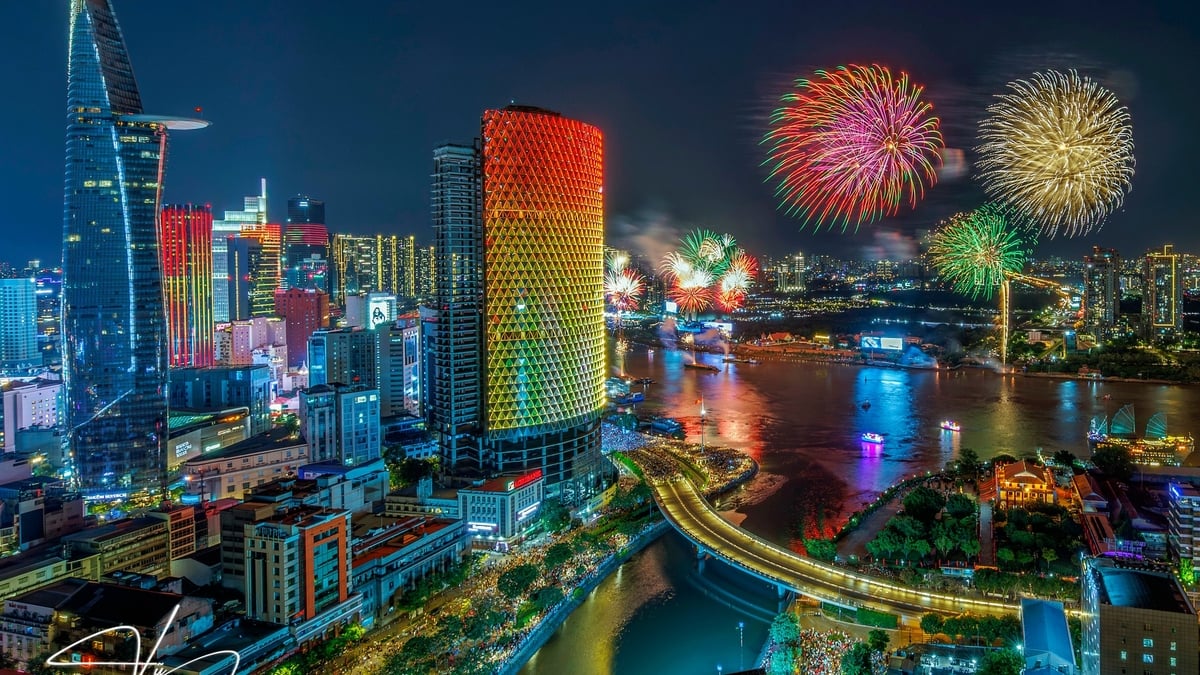



![[Photo] National Assembly delegates visit President Ho Chi Minh's Mausoleum](https://vphoto.vietnam.vn/thumb/1200x675/vietnam/resource/IMAGE/2025/5/5/9c1b8b0a0c264b84a43b60d30df48f75)
![[Photo] Solemn opening of the 9th Session, 15th National Assembly](https://vphoto.vietnam.vn/thumb/1200x675/vietnam/resource/IMAGE/2025/5/5/ad3b9de4debc46efb4a0e04db0295ad8)
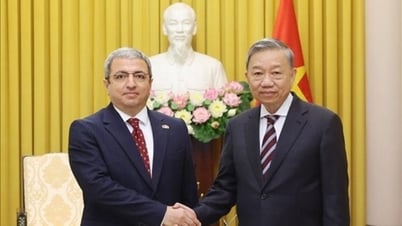

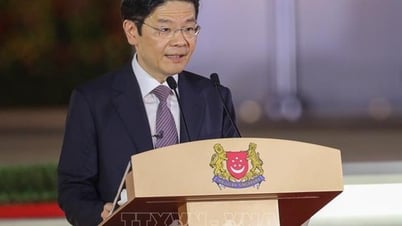

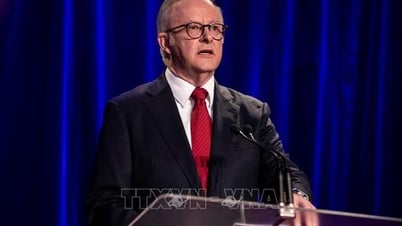
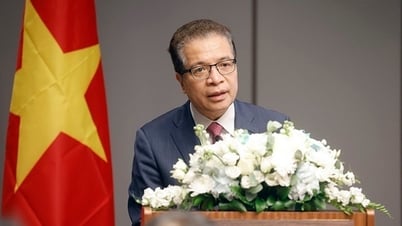





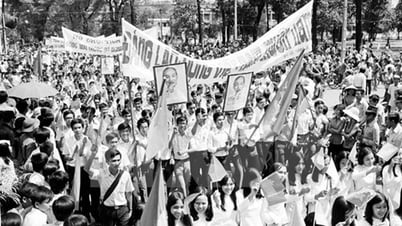
![[Photo] Bus station begins to get crowded welcoming people returning to the capital after 5 days of holiday](https://vphoto.vietnam.vn/thumb/1200x675/vietnam/resource/IMAGE/2025/5/4/c3b37b336a0a450a983a0b09188c2fe6)
![[Photo] General Secretary To Lam receives Sri Lankan President Anura Kumara Dissanayaka](https://vphoto.vietnam.vn/thumb/1200x675/vietnam/resource/IMAGE/2025/5/4/75feee4ea0c14825819a8b7ad25518d8)


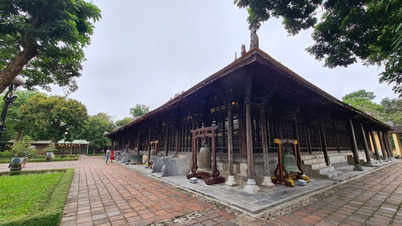




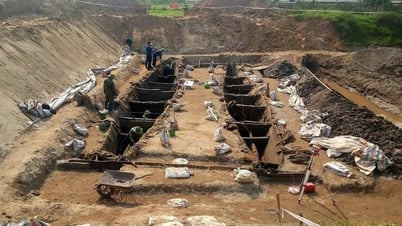








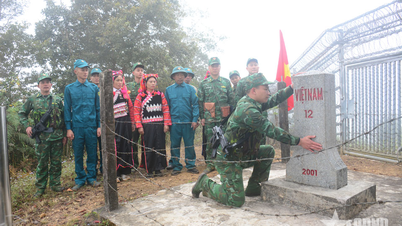

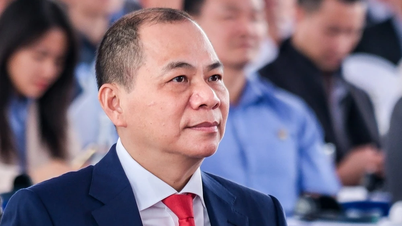

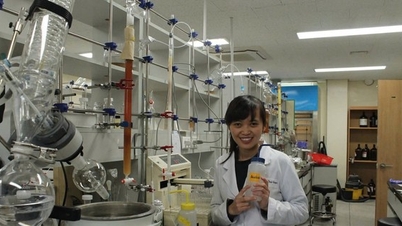







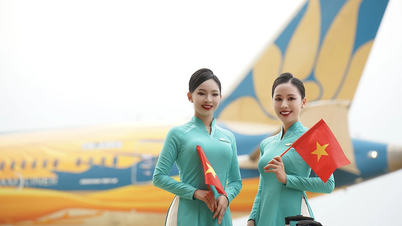

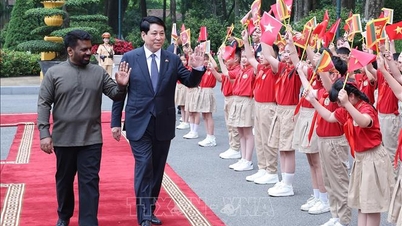

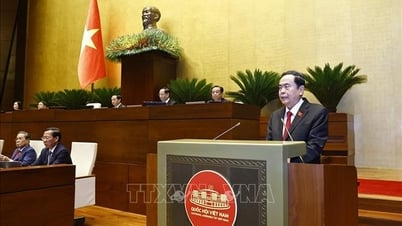
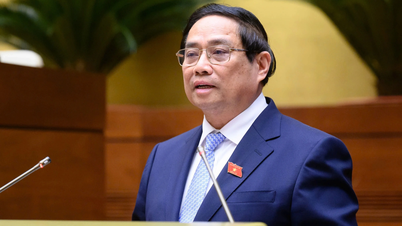
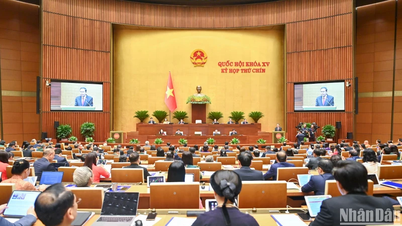


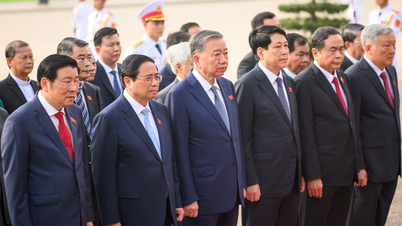
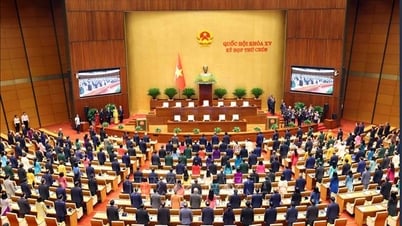







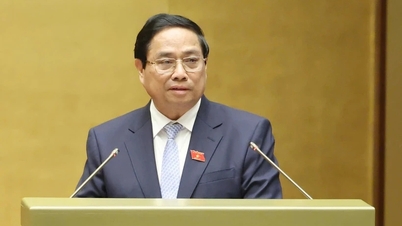






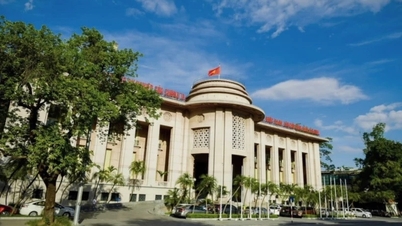








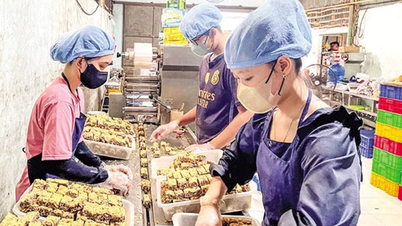





Comment (0)